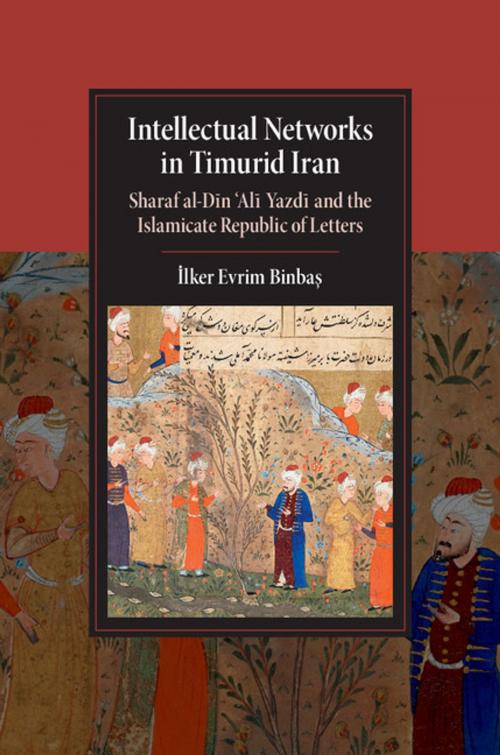Intellectual Networks in Timurid Iran
Sharaf al-Dīn ‘Alī Yazdī and the Islamicate Republic of Letters
Nonfiction, History, Middle East, Social & Cultural Studies, Social Science| Author: | İlker Evrim Binbaş | ISBN: | 9781316551905 |
| Publisher: | Cambridge University Press | Publication: | May 26, 2016 |
| Imprint: | Cambridge University Press | Language: | English |
| Author: | İlker Evrim Binbaş |
| ISBN: | 9781316551905 |
| Publisher: | Cambridge University Press |
| Publication: | May 26, 2016 |
| Imprint: | Cambridge University Press |
| Language: | English |
By focusing on the works and intellectual network of the Timurid historian Sharaf al Dīn 'Alī Yazdī (d.1454), this book presents a holistic view of intellectual life in fifteenth century Iran. İlker Evrim Binbaş argues that the intellectuals in this period formed informal networks which transcended political and linguistic boundaries, and spanned an area from the western fringes of the Ottoman State to bustling late medieval metropolises such as Cairo, Shiraz, and Samarkand. The network included an Ottoman revolutionary, a Mamluk prophet, and a Timurid occultist, as well as physicians, astronomers, devotees of the secret sciences, and those political figures who believed that the network was a force to be taken seriously. Also discussing the formation of an early modern Islamicate republic of letters, this book offers fresh insights on the study of intellectual history beyond the limitations imposed by nationalist methodologies, established genres, and recognized literary traditions.
By focusing on the works and intellectual network of the Timurid historian Sharaf al Dīn 'Alī Yazdī (d.1454), this book presents a holistic view of intellectual life in fifteenth century Iran. İlker Evrim Binbaş argues that the intellectuals in this period formed informal networks which transcended political and linguistic boundaries, and spanned an area from the western fringes of the Ottoman State to bustling late medieval metropolises such as Cairo, Shiraz, and Samarkand. The network included an Ottoman revolutionary, a Mamluk prophet, and a Timurid occultist, as well as physicians, astronomers, devotees of the secret sciences, and those political figures who believed that the network was a force to be taken seriously. Also discussing the formation of an early modern Islamicate republic of letters, this book offers fresh insights on the study of intellectual history beyond the limitations imposed by nationalist methodologies, established genres, and recognized literary traditions.















